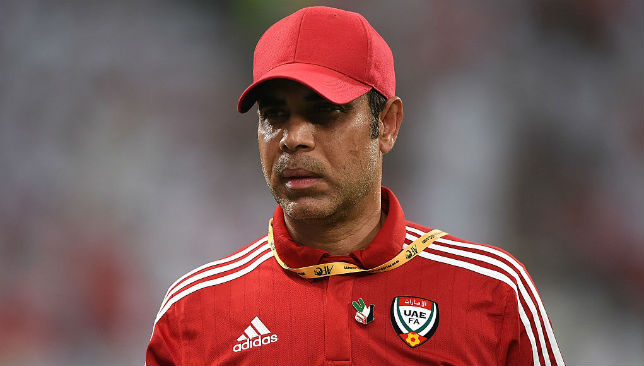
Trading on past successes, underperforming players, outdated tactics and disgruntled supporters. This time, we’re not talking about Arsenal and Arsene Wenger.
Instead, this is the situation UAE boss Mahdi Ali found himself in as he did what the Frenchman is yet to do and belatedly called time on his unravelling four-and-a-half year reign as UAE boss Tuesday.
Yet this represents an overdue decision which should have been taken long ago by his masters at the UAE Football Association.
A failure to make the uncomfortable choice to relieve a legend of his post has led to an avoidable situation in which a ‘Golden Generation’ looks set to miss a rare shot at the World Cup.
The failures by Ali in the last 18 months are plentiful. But they are not his alone. The 51-year-old stepped aside with his nation’s mission to make Russia 2018 on life support after a 2-0 defeat to Australia.
This performance was not as wretched as the reversal which preceded it against Japan, yet it was by no means befitting of a side who should have been desperately searching for a positive result. Ali’s place in the pantheon of UAE football greats is assured.
Here's @mattmonaghan360's report as UAE coach Mahdi Ali announces his resignation... #mahdi #AUSvUAE #WCQ2018
— Sport360° (@Sport360) March 28, 2017
📰 https://t.co/dBoDvBzKAO pic.twitter.com/6jCFlZZztZ
Nurturing a promising group all the way up from success at the AFC U-19 Championship in 2008, to making the London 2012 Olympics, winning the 2013 Gulf Cup and finishing third at the 2015 Asian Cup guarantees a respectful spot in the history books.
Nevermind the fact that under his tutelage, Ahmed Khalil and Omar Abdulrahman claimed the 2015 and 2016 AFC Player of the Year gongs. But a place in the future should never be assured when the present situation is so sub-par.
All Ali’s long-term faults were on show against the Socceroos. The obsolete 4-4-2 formation denied valuable possession, familiar faces such as Al Ahli right-back Abdulaziz Sanqour stayed in the XI despite awful form and too much responsibility was placed on ‘Amoory’.
Hot prospects such as the Al Jazira pair of Mohammed Jamal and Khalfan Mubarak were either left at home or on the bench, acolyte Khalil was thrust into action even though he admitted he was unfit and a failure to respond to the physical demands of international football caused two unmarked set-pieces to be conceded.
A sense is undeniable that players used to hearing the same voice had long stopped listening. Simply, the achievements of two years ago Down Under represented the zenith of this regime.
The degeneration was in evidence during a fitful second-round qualification process. The alarm bells only grew louder last October with a humiliating 3-0 defeat in Saudi Arabia.
Action should have been taken at that moment or even, as Ali revealed in Sydney, when he originally handed in his notice before November’s uninspired 2-0 victory against Iraq. But the UAE FA, again, refused to act.
The governing body’s stasis is questionable when you consider the fact that, more than likely, this incredible squad’s finest years are set to go to waste. For a group all presently aged around 26, Russia 2018 was the tournament to secure the nation’s second-ever entry into sport’s grandest event.
With only 1.4 million Emiratis, such opportunities rarely come about. Even the World Cup’s increase to 48 teams in 2026 does not guarantee participation with competitiveness growing across Asia. There are 77 days until the UAE’s next qualifier.
A right call must be made on who follows, but can the FA be trusted to do it?